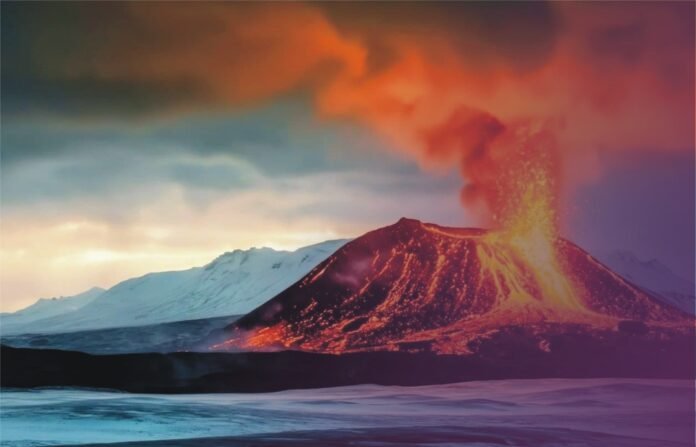Scientists uncovered something surprising: the sun affects deep-earth magma creation. This surprise discovery transforms our understanding of Earth’s volcanic eruptions, tectonic movements, and climate variations.
Wan Bo, a geologist with the Chinese Academy of Sciences, is in charge of this significant research. Sunlight indirectly affects chemical reactions in Earth’s magma.
Discovering “redox” processes in magma is important. The redox state is the balance between oxidising and reducing conditions in magma, especially volcanic arcs. Marine organisms rich in organic carbon play a surprising role in these events. Subducting oceanic plates send carbon-rich creatures down into Earth.
This organic carbon reduces magma oxidation. Elements from the sun-soaked ocean surface enter the Earth’s deep, affecting magma’s chemical makeup.
Researchers examined thousands of global magma samples. Scientists use these samples to study surface climate and deep Earth processes. Magma is more oxidised at higher latitudes than lower latitudes, according to vanadium and scandium levels.
The sun’s influence goes beyond redox. Seafloor studies reveal lower latitudes have more reduced carbon. This carbon and sulphur produce sulphide, which enters the mantle and alters magma’s redox state.
This relationship between surface and deep Earth processes allows resource exploration and environmental effect analysis at different latitudes.
Understanding the sun’s impact on Earth’s magma can transform climate change research. Global temperature fluctuations affect ocean organic matter availability and carbon transit into the Earth’s interior. Magma’s redox status can fluctuate over time.
Predicting volcanic eruptions and climatic variability needs this knowledge. It can also improve climate change models for Earth’s surface and subsurface dynamics.
As interest in the sun’s effect on magma rises, researchers will study how organic carbon changes the redox state and influences volcanic activity and mineral deposits. Advanced analytical methods could reveal magma’s elemental signatures, helping us comprehend volcanic arc changes.
Geologists, geochemists, and environmental scientists working together will lead to more groundbreaking discoveries about natural processes affecting our globe.
These findings are promising, but Wan Bo stresses the need for further data, especially from worldwide marine and subducted sediments. This study opened up exciting new areas of inquiry.
Next time you appreciate the sun’s warm rays, recall its intricate influence on our globe, stretching to Earth’s magma.



